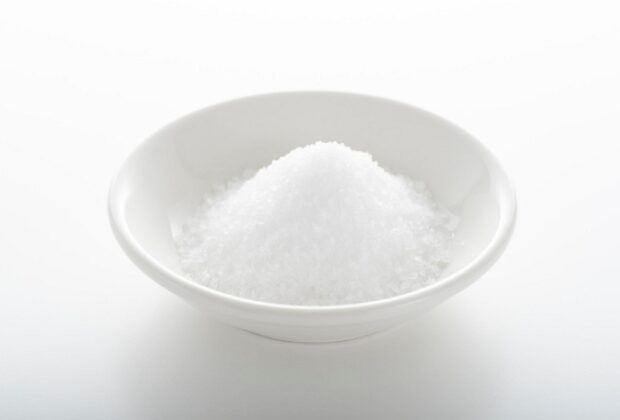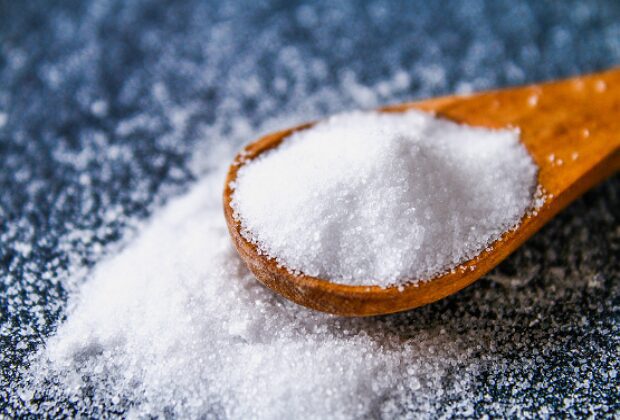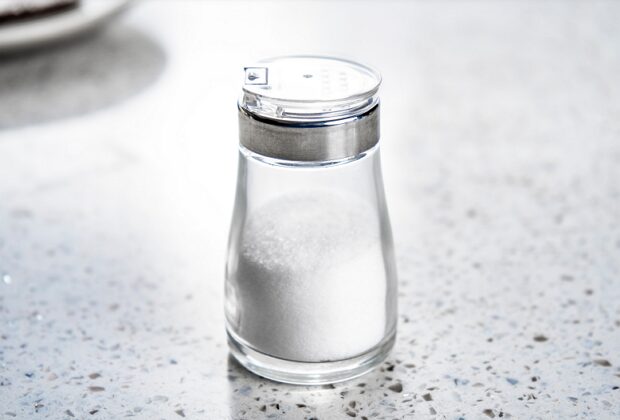Are you looking for the best salt substitute in your recipes? Salt is a staple ingredient in most kitchens around the world, and it is hard to imagine cooking without it. But, do you know that excessive consumption of salt can lead to several health problems? Like high blood pressure, heart disease, and stroke. According to the American Heart Association, an average American consumes about 3,400 milligrams of sodium per day, which is more than double the recommended limit. This is where salt substitutes come in as a healthy alternative to sodium.
What is a Salt Substitute?

A salt substitute is a seasoning that is used in place of sodium chloride to add flavor to food. These substitutes are made from a blend of herbs, spices, and other natural ingredients that enhance the taste of food without adding sodium. It is particularly helpful for individuals who are trying to reduce their salt intake due to health reasons.
How Does Salt Substitute Work?
It works by providing a similar taste to that of salt without the negative health effects associated with sodium. Most salt substitutes contain potassium chloride, which is a mineral that is naturally found in many foods. Potassium chloride is used as a salt substitute because it has a similar taste to sodium chloride, but it does not raise blood pressure as sodium does.
Benefits of Salt Substitute
Lower Blood Pressure
One of the primary benefits of salt substitutes is that they help to lower blood pressure. High blood pressure is a leading cause of heart disease, stroke, and kidney failure. By reducing sodium intake and replacing it with potassium chloride, salt substitutes can help to lower blood pressure and reduce the risk of these health problems.
Weight Loss
Salt substitutes can also aid in weight loss. Excessive salt intake is associated with water retention, which can lead to bloating and weight gain. By reducing sodium intake and replacing it with potassium chloride, salt substitutes can help to reduce water retention and promote weight loss.
Improved Taste
Salt substitutes can also enhance the taste of food. They contain a blend of herbs and spices that add flavor to food without the need for added salt. This makes them an excellent choice for individuals who are looking to reduce their salt intake but still want to enjoy flavorful meals.
Best Salt Substitutes

Potassium Chloride
This is the most commonly used salt substitute. It has a similar taste to sodium chloride and can be used in cooking and as a table seasoning. However, it is important to note that excessive consumption of potassium chloride can be harmful to individuals with kidney problems or those taking certain medications.
Lemon Juice
Lemon juice is a natural alternative to salt that can be used to add flavor to food. It is particularly useful in marinades, dressings, and sauces.
Herbs and Spices
A blend of herbs and spices such as onion, oregano, and thyme can be used to add flavor to food without adding salt. These can be used in cooking or as a table seasoning.
Vinegar
Vinegar can be used to add flavor to food and can be used in marinades, dressings, and sauces. It is particularly useful in dishes such as salads and roasted vegetables.
Nutritional Yeast
Nutritional yeast is a type of yeast that is used as a seasoning in vegan and vegetarian dishes. It has a cheesy flavor and can be used in place of salt in many recipes. Using nutritional yeast instead of salt may offer additional health benefits. Nutritional yeast’s beta glucan fiber may help decrease cholesterol, potentially lowering your risk of heart disease.
Soy Sauce
Soy sauce is a salty liquid that is commonly used in Asian cuisine. It can be used as a marinade or as a seasoning in stir-fries and other dishes.
Miso
Miso is a fermented soybean paste that is often used in Japanese food. It has a salty flavor and can be used as a seasoning in soups, stews, and marinades.
Coconut Aminos
Coconut Aminos are made from salt and coconut sap. It is a good alternative to soy sauce and can be used in marinades, dressings, and sauces.
Garlic
Garlic has a strong, pungent flavor that can add depth and complexity to dishes. It can be used in everything from soups and stews to marinades and sauces.
Dill
Dill has a fresh, herbaceous flavor that pairs well with fish, chicken, and vegetables. It can be used in salads, dips, and dressings to add a pop of flavor.
Smoked Paprika
Smoked paprika has a smoky, slightly sweet flavor that can add depth to meats, stews, and sauces. It is particularly good in dishes with a southwestern or Spanish flair.
Apple Cider Vinegar
Apple cider vinegar has a tangy, slightly sweet flavor that can be used in dressings, marinades, and sauces. It can also be used to add acidity to dishes that might otherwise call for salt.
How Much Sodium Should I Consume Each Day?

For most adults, the American Heart Association recommends no more than 2,300 mg of salt every day, with an ideal limit of only 1,500 mg/day. Because the average American consumes much excess sodium, even decreasing by 1,000 mg a day can greatly improve heart health and blood pressure. However, the U.S. National Academies of Sciences, Engineering, and Medicine determined that an adequate daily sodium intake is about 1,500 mg to 2,300 mg per day for healthy adults.
The Risks of Sodium Underconsumption
While it’s important to limit sodium intake to avoid health problems such as high blood pressure, heart disease, and stroke, underconsumption of sodium can also have negative health effects. When sodium levels are too low, it can cause a condition called hyponatremia, which occurs when the sodium levels in the blood are too diluted. Symptoms of hyponatremia can include headache, nausea, vomiting, seizures, and even coma in severe cases.
Moreover, low sodium levels can also lead to a decrease in blood volume, which can cause low blood pressure and lead to dizziness, fainting, and other symptoms. Sodium is also important for proper nerve and muscle function, so not getting enough can lead to muscle cramps, weakness, and fatigue.
Can I Substitute Sea Salt For Kosher Salt?
Yes, sea salt can be substituted for kosher salt in most recipes, but it may not taste exactly the same. One of the main differences between the two is that sea salt contains magnesium chloride, while kosher salt does not. This gives sea salt a slightly different flavor profile. As a general rule, you can substitute 1 ¼ teaspoons of sea salt for every 1 teaspoon of kosher salt called for in a recipe. But, it’s always a good idea to taste as you go and adjust seasoning as needed.
FAQs
Is Salt Substitute Safe?
Salt substitutes are generally safe for most people. However, individuals with kidney problems or those who are taking medications that affect potassium levels should consult with their healthcare provider before using salt substitutes.
How do I use Salt Substitutes?
Salt substitutes can be used in place of salt in any recipe. They can also be added to food while cooking or used as a seasoning at the table.
Are Salt Substitutes Expensive?
Salt substitutes are mostly affordable and can be found at most grocery stores. They are also available online.
Do Salt Substitutes Taste Like Salt?
Salt substitutes have a similar taste to salt, but they may have a slightly different flavor due to the blend of herbs and spices used in their formulation.
Can salt alternatives be used directly in recipes in place of table salt?
Salt substitutes can be used in place of table salt in recipes, but be aware that they may have a slightly different flavor. It is best to start with just a small amount and gradually increase the seasoning to your liking.
Can those on a low-sodium diet use salt substitutes?
Yes, salt alternatives can be advantageous for people on a low-sodium diet since they add flavor while lowering sodium intake. However, it is critical to carefully review product labels to ensure that they are appropriate for your dietary needs.
Is it possible to find natural salt substitutes?
Yes, there are natural salt alternatives that can improve the flavor of food. Herbs, spices, citrus juices, vinegar, and low-sodium sauces are all popular choices.
Can salt replacements be used in all sorts of cooking?
Salt alternatives can be used in almost any type of cuisine, including baking, sauteing, and seasoning. Still, it is always a good idea to read the precise directions and suggestions on the product packaging.
Conclusion
Salt substitutes are a healthy alternative to sodium chloride that can help to reduce the risk of several health problems associated with excessive salt intake. They are safe, affordable, and easy to use, making them an excellent choice for individuals who are looking to reduce their salt consumption without sacrificing flavor. By incorporating salt substitutes into their diets, individuals can enjoy flavorful meals while promoting better health. Remember to always consult with a healthcare professional or a registered dietitian before making significant changes to your diet or using salt substitutes, especially if you have any underlying health conditions.

